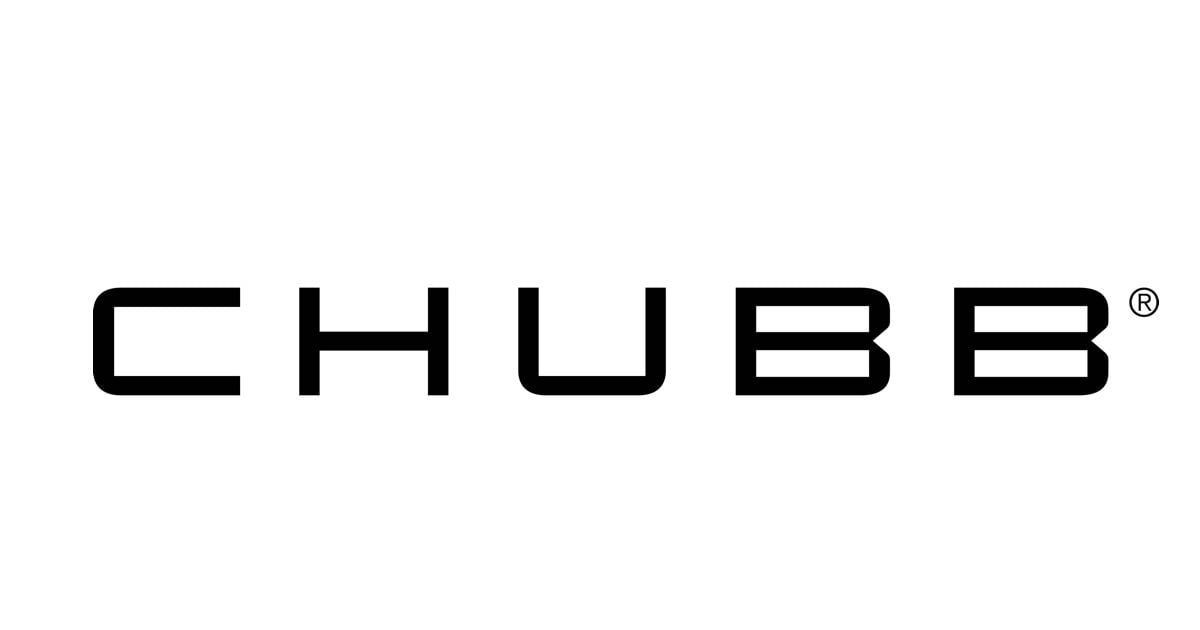Key takeaways
Chubb and NJM received the highest ratings in our analysis of home insurers in New Jersey.
NJM is the best cheap insurer in New Jersey, with a star rating of 4.9 and an average annual premium of $1,135.
Chubb and NJM are among the best home insurance companies in New Jersey, according to NerdWallet's analysis.
To help you find the best home insurance in New Jersey, we gathered and analyzed data from insurance companies around the state. These are the insurers that earned 4.7 stars or more.
Rates are based on a sample homeowner with good credit, $300,000 of dwelling coverage, $300,000 of liability coverage and a $1,000 deductible.
Company | NerdWallet star rating | Average annual rate |
|---|---|---|
Not available | ||
$1,135 | ||
Not available | ||
Not available | ||
Not available | ||
$1,375 | ||
USAA* | $1,240 | |
*USAA membership is open only to active military, veterans, some federal employees and their families. | ||
» MORE: The best homeowners insurance
Get home insurance quotes in minutes
Answer a few questions to see custom quotes and find the right policy for you.The best home insurance companies in New Jersey
Note: Some insurance companies included in this article may have made changes in their underwriting practices and no longer issue new policies in your state.

Chubb
- Far fewer consumer complaints than expected for a company of its size.
- Standard coverage includes features that many companies offer only as extras.
- Perks to help you protect your home.
- Most consumers can't get a quote online and will instead need to contact a local agent.
Chubb caters to affluent homeowners, offering coverage other insurers often charge extra for. For example, the company’s policies include extended replacement cost coverage for the structure of your home. This is useful in case it costs more than your dwelling limit to rebuild after a disaster. Chubb’s standard policies also cover water damage from backed-up sewers and drains.
Chubb policyholders with secondary or seasonal homes in New Jersey are eligible for the company’s Property Manager service at no charge. With this service, a Chubb representative will check your home after a hurricane and report its condition to you. They can also help prevent further damage and submit a claim on your behalf.
» READ MORE: Chubb homeowners insurance review

NJM
- Includes coverage other companies charge extra for.
- Very low rate of consumer complaints.
- Many extra coverage options available.
- No app to manage your policy.
NJM offers standard coverage that many other companies charge extra for. For example, NJM will pay the full cost to rebuild your home even if it’s more than your dwelling limit. (Not all companies offer this, and even fewer include it with standard policies.) It will also pay enough for you to buy brand-new replacements for your belongings if they’re stolen or destroyed.
On top of its robust coverage options, NJM stands out for customer service. It draws a very low rate of consumer complaints, according to the National Association of Insurance Commissioners. This suggests NJM’s customers are happy with the service they receive.
» READ MORE: NJM homeowners insurance review

Andover Companies
- Far fewer consumer complaints than expected.
- Includes more generous dwelling and personal property coverage than most insurers.
- Many additional coverage options to choose from.
- Limited online experience.
The Andover Companies’ home insurance generally comes with more coverage than a standard home insurance policy provides. In particular, Andover stands out for providing guaranteed replacement cost coverage for most homes. This means Andover will pay to rebuild your home after a covered claim, no matter what it costs.
Most Andover policies also include replacement cost coverage for your personal belongings, which means you’ll get enough to buy brand-new stuff after a covered claim. You can add coverage for valuables like jewelry or firearms, or to replace refrigerated food you have to throw out after a covered power outage.
» READ MORE: Andover Companies homeowners insurance review

Amica
- High customer satisfaction ratings and low consumer complaints.
- Platinum Choice package offers extra coverage.
- Dividend policies can return a portion of your premiums.
- You can start a quote online but may have to finish the buying process by phone.
Amica stands out for its broad range of coverage options. For example, you can customize your policy with extra coverage above your dwelling limit. This could be useful in case your house costs more to rebuild than expected. You may also want to add coverage for identity theft or damage from backed-up drains.
The company shines when it comes to customer service. It draws a very low rate of complaints compared to other insurers, according to the NAIC. Amica also earned high marks in two recent J.D. Power surveys about home insurance and customer satisfaction.
» READ MORE: Amica homeowners insurance review

Cincinnati Insurance
- Various coverage options.
- Far fewer complaints than expected for a company of its size.
- Coverage available for higher-value homes.
- No online quotes.
- Very little information on website.
If you want to support companies that value sustainability, consider Cincinnati Insurance. In recent years, the insurer has reduced fossil fuel emissions from both its facilities and company vehicles. When you buy Cincinnati home insurance, you may be able to add a “green upgrade” endorsement. With this coverage, you can use eco-friendly materials to repair or rebuild your home after a claim.
The company offers a variety of other options, including comprehensive coverage for high-value homes. You may be able to add coverage for things like identity theft, personal cyber attacks or certain types of water damage.
» READ MORE: Cincinnati Insurance homeowners insurance review
State Farm
- User-friendly website.
- Agents offer personalized service.
- Policies generally include extra coverage for your home’s structure.
- Below average for claim satisfaction in a recent J.D. Power study.
As America’s largest home insurer, State Farm stands out for its long list of coverage options. Its policies generally include extra dwelling coverage in case it costs more than expected to rebuild your home.
You may be able to add coverage for things like identity theft and water damage from backed-up drains. Another option may be to add an inflation guard rider to your policy. This automatically increases your policy limits to keep up with rising costs.
State Farm offers a free Ting smart plug to home insurance policyholders as a perk. This device monitors your home’s electrical network to help prevent fires.
» READ MORE: State Farm homeowners insurance review

USAA
- Policies include standard coverage that often costs extra elsewhere.
- Fewer customer complaints to state regulators than expected for a company of its size.
- Perks for military homeowners.
- Available only to active military members, veterans, some federal employees and their families.
USAA sells homeowners insurance to active military members, veterans, some federal employees and their families. If that’s you, you may want to consider USAA.
The company offers some perks that are specific to members of the military, like deductible-free coverage for military uniforms and equipment. USAA will also waive your deductible if your personal property is damaged or lost due to war.
USAA homeowners insurance has certain features that many insurers charge extra for. For example, USAA covers your personal belongings on a replacement cost basis. That means you’ll get enough money to buy brand-new replacements for damaged items. Many companies pay only what your items are worth at the time of the claim.
» READ MORE: USAA homeowners insurance review
- See all NerdWallet home insurance reviews
How much does homeowners insurance cost in New Jersey?
The average annual cost of home insurance in New Jersey is $1,290. That’s 39% less than the national average of $2,110.
In most U.S. states, including New Jersey, many insurers use your credit-based insurance score to help set rates. Your insurance score is similar but not identical to your traditional credit score.
In New Jersey, those with poor credit pay an average of $2,530 per year for homeowners insurance, according to NerdWallet’s rate analysis. That’s 96% more than those with good credit.
Average cost of homeowners insurance in New Jersey by city
The cost of your policy depends on where you live in New Jersey. For example, the average cost of homeowners insurance in Newark is $1,425 per year, on average, while homeowners in Edison pay just $925 per year, on average.
City | Average annual rate | Average monthly rate |
|---|---|---|
Bayonne | $1,265 | $105 |
Brick | $1,410 | $118 |
Camden | $1,355 | $113 |
Cherry Hill | $1,330 | $111 |
Clifton | $1,125 | $94 |
East Orange | $1,460 | $122 |
Edison | $925 | $77 |
Elizabeth | $1,240 | $103 |
Hoboken | $1,275 | $106 |
Irvington | $1,395 | $116 |
Jackson | $1,065 | $89 |
Jersey City | $1,315 | $110 |
Lakewood | $1,170 | $98 |
Newark | $1,425 | $119 |
North Bergen | $1,235 | $103 |
Passaic | $1,340 | $112 |
Paterson | $1,445 | $120 |
Perth Amboy | $1,045 | $87 |
Piscataway | $1,090 | $91 |
Plainfield | $1,110 | $93 |
Toms River | $1,325 | $110 |
Trenton | $1,275 | $106 |
Union City | $1,345 | $112 |
Vineland | $1,295 | $108 |
West New York | $1,175 | $98 |
The cheapest home insurance in New Jersey
Here are the insurers we found with average annual rates below the New Jersey average of $1,290.
Company | NerdWallet star rating | Average annual rate |
|---|---|---|
Selective | Not rated | $915 |
$925 | ||
Cumberland Mutual | 3.0NerdWallet rating | $1,030 |
New Jersey Skylands | Not rated | $1,070 |
$1,135 | ||
Franklin Mutual | Not rated | $1,225 |
Preferred Mutual | Not rated | $1,280 |
USAA* | $1,240 | |
*USAA membership is open only to active military, veterans, some federal employees and their families. | ||
Common risks for New Jersey homeowners
Here are a few things to keep in mind when shopping for home insurance in New Jersey.
Hurricanes and tropical storms
To protect your finances from hurricanes and tropical storms, you’ll need insurance for both wind and flood damage. While most home insurance policies cover wind damage, they usually don’t cover flooding. If you live near the coast or in another area prone to flooding, you may want to buy separate flood insurance. (Depending on where you live, your mortgage lender may even require it.)
To check your flood risk, start by looking up your address on the Federal Emergency Management Agency's flood maps. However, FEMA’s maps don’t always capture all types of flood risk. You may want to check another source, like First Street, a private company that models climate hazards. Enter your address at the top of the page to see your home’s flood risk rating on a scale of 1 to 10.
» MORE: Do I need flood insurance?
Your homeowners policy may have a separate hurricane or windstorm deductible that’s higher than your general deductible for other types of claims.
A windstorm or hurricane deductible is typically a percentage of your home’s dwelling coverage rather than a flat dollar amount. So if your home is insured for $300,000 with a 5% deductible, you’ll have to pay for the first $15,000 of damage from a storm. To find your deductibles, check your homeowners declarations page or call your agent.
Winter storms
Winter weather can cause a variety of problems for your home, including bursting pipes and fallen trees. A standard homeowners policy often covers damage due to snow or ice, though it depends on the circumstances.
For example, if heavy snow knocks a tree onto your roof, that damage would likely be covered. But if the tree simply falls in your yard, your policy may not pay to remove it. Your policy may exempt damage from negligence, such as a pipe that froze and burst after you left the thermostat set too low while you were away.
Tornadoes
A standard homeowners policy covers damage caused by windstorms, which include tornadoes. However, it may not cover damage to your trees or landscaping. Learn more about homeowners insurance and tornadoes.
Leaking oil tanks
If your property has an underground storage tank for heating oil, check your homeowners policy to see what coverage you have. Oil tanks may leak, requiring expensive cleanup and putting you at risk of a lawsuit if the damage spreads beyond your property line.
Some New Jersey homeowners insurance companies will charge you extra if you have an underground storage tank. They may also refuse to pay for damage on your property if the tank leaks. You may be able to get a certain amount of liability coverage for the tank. That means if someone sues you because a leak damages to their property, the company would help cover the costs.
Get home insurance quotes in minutes
Answer a few questions to see custom quotes and find the right policy for you.New Jersey department of insurance
New Jersey’s Department of Banking and Insurance can help policyholders who have questions or complaints about their homeowners insurance. You can get information online or call the agency’s consumer hotline at 800-446-7467.
By law, you must receive a one-page coverage summary when you buy or renew your New Jersey homeowners insurance policy. This document explains what your policy does and doesn’t cover.
How we rate homeowners insurance
NerdWallet’s star ratings reward companies for consumer-first features and practices. We evaluate factors such as consumer experience, coverage, discounts and financial strength.
In our research, we analyzed:
More than 270 million homeowners insurance rates.
More than 100 insurance companies.
Nearly 200 homeowner profiles.
View our complete homeowners insurance rating methodology.
- Find home insurance in other states
Frequently asked questions
Is homeowners insurance required in New Jersey?
Is homeowners insurance required in New Jersey?
Unlike auto insurance, homeowners insurance isn’t required by law in New Jersey. But if you have a mortgage, your lender will probably require you to buy a policy. For more information, read Is Homeowners Insurance Required?
How much is homeowners insurance in New Jersey per month?
How much is homeowners insurance in New Jersey per month?
The average cost of home insurance in New Jersey is $1,290 per year, or about $108 per month, according to a NerdWallet rate analysis.
Does home insurance in New Jersey cover your roof?
Does home insurance in New Jersey cover your roof?
Standard home insurance covers the full structure of your house, including the roof. Whether the policy will pay to repair or replace your roof depends on the cause of the damage. As long as the roof was damaged by something your policy covers — such as fire or heavy snow — your policy will generally pay for repairs, minus your deductible. However, homeowners insurance won’t cover damage due to negligence or simple wear and tear. Learn more about home insurance and roof leaks.
Star rating methodology
NerdWallet’s homeowners insurance ratings reward companies for customer-first features and practices. Ratings are based on weighted averages of scores in several categories, including financial strength, consumer complaints, coverage, discounts, claims process and website functionality. These ratings are a guide, but we encourage you to shop around and compare several insurance quotes to find the best rate for you. NerdWallet does not receive compensation for any reviews or star ratings.
Here’s how we weighted each category to come up with our list of the best home insurance companies:
Consumer experience (40%).
Financial strength (30%).
Coverage (25%).
Discounts (5%).
Read our full home insurance ratings methodology for more details.
Homeowners insurance rates methodology
NerdWallet calculated median rates for 40-year-old homeowners from various insurance companies in the 25 largest cities in each U.S. state by population. All rates are rounded to the nearest $5.
Sample homeowners were nonsmokers with good credit living in a single-family, two-story home built in 1984. They had a $1,000 deductible and the following coverage limits:
$300,000 in dwelling coverage.
$30,000 in other structures coverage.
$150,000 in personal property coverage.
$60,000 in loss of use coverage.
$300,000 in liability coverage.
$1,000 in medical payments coverage.
We made minor changes to the sample policy in cases where rates for the above coverage limits or deductibles weren’t available.
In states where credit is a rating factor, we changed the credit tier from “good” to “poor,” as reported to the insurer, to see rates for homeowners with poor credit.
These are sample rates generated through Quadrant Information Services. Your own rates will be different.
Complaint methodology
NerdWallet examined complaints received by state insurance regulators and reported to the National Association of Insurance Commissioners in 2022-2024. To assess how insurers compare with one another, the NAIC calculates a complaint index each year for each subsidiary, measuring its share of total complaints relative to its size, or share of total premiums in the industry. To evaluate a company’s complaint history, NerdWallet calculated a similar index for each insurer, weighted by market shares of each subsidiary, over the three-year period.
NerdWallet conducts its data analysis and reaches conclusions independently and without the endorsement of the NAIC. Ratios are determined separately for auto, home (including renters and condo) and life insurance.







